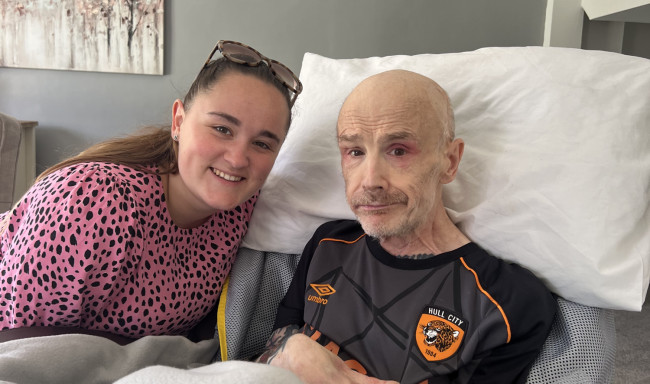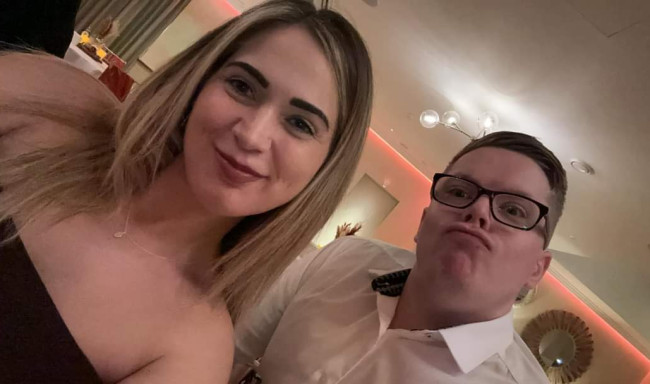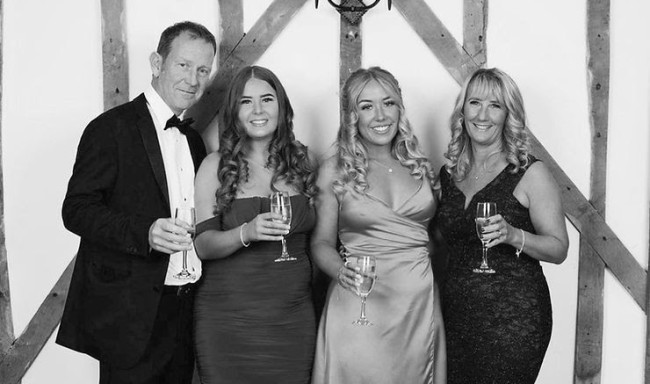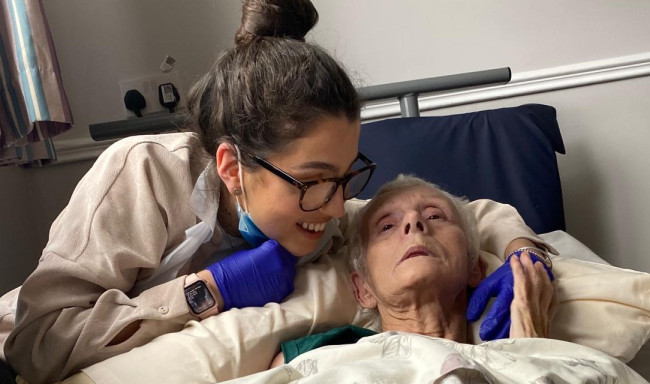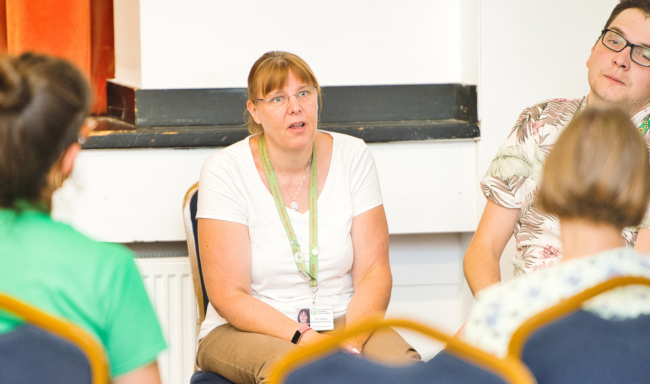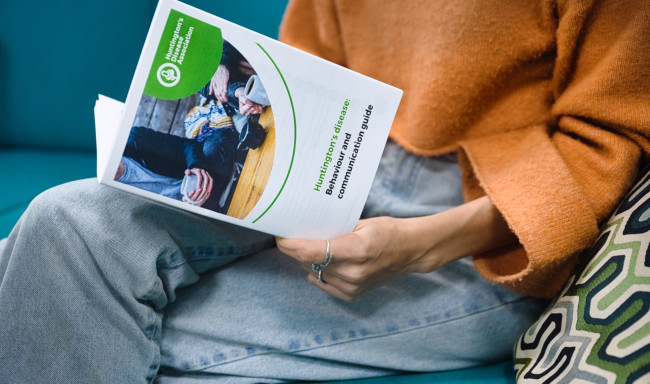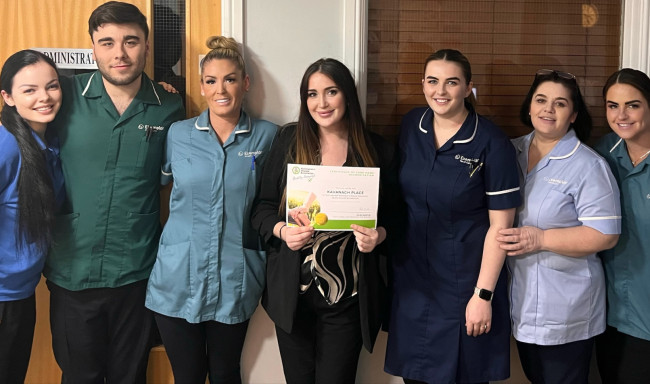We spoke to Sian about how Huntington's disease affected her family from a young age. Sian talks about her testing journey and how it impacted her life and directed her future.
Tell us a little about you and your background
"I was born in Scotland as my dad was in the navy and our family moved about a lot but I have spent 29 out of my 31 years living in Swansea, South Wales. I am the youngest of three children with one brother and one sister. My mum was diagnosed with Huntington’s disease aged 40 and I became my mum's carer at the age of 13. Mum sadly passed away after a courageous battle with Huntington’s for almost 20 years."
When did you first know that Huntington’s disease affected your family?
"As children we would always visit our grandfather (my mum’s dad) who had Huntington’s disease and lived in a residential home. Huntington’s was never mentioned to us as children but we were aware he was ill. At the age of 13 my mum received her diagnosis and it was at that age I started to learn more about the disease. By the age of 14 I had left school to become my mum’s carer."
What was it like caring for your mum from a young age?
"Because I was so young I still did not know a lot about Huntington’s disease. I knew my mum was becoming unwell as she had to give up her work and started to have a lot of falls. It was just us for a period of time and although my life was very different to my friends I wouldn't have had it any other way. Mum never sat me down and explained exactly what her condition was, when I think back now I think maybe she was too scared to have that conversation with me so it was a lot of learning as I went. Although I had support from family members no one seemed to understand mum like I did. You had to be patient with mum which others didn’t understand, things were changing for her and we had to learn to live her way. Even after her diagnosis and with Huntington’s becoming more apparent, we still had some amazing times. Mum had to go into residential care a few years later, it was so hard but the staff really took mum as their own and it just became like a second family. Some of the best memories I have with mum were made with the help of the staff."
Why did you decide to get tested?
"I was in my early twenties when I decided to get tested, my brother had already tested negative and my sister didn't want to find out but I just wanted to know. It wasn't for any particular reason that I decided to get tested, I just felt ready and regardless of the result I would deal with it. I remember thinking that maybe I shouldn't get tested because if me and my brother were both negative, was it more likely my sister would then have the gene? I know it doesn't work like that, but it didn't stop me thinking that way. At that point she already had a young child so that was something that certainly played on my mind."
What was the testing process like?
"I remember being told I would have to have some counselling first to be sure I was ready. I had a few sessions but they were happy with where I was in my life and my reasons for wanting to get it done. The staff were so nice and really understanding. I was able to express my concern about if my result came back negative, did that increase my sister’s risk? They understood my worries and it was really beneficial to have the counselling beforehand."
How did you feel after getting your result, do you think this would have been different if your sister had tested positive?
"I can still picture the moment when the lady told me it was negative. Straight away it was a feeling of guilt. It sounds strange but so much goes through your mind and I remember thinking, me and my brother have now tested negative which is amazing but is my sister the one to carry the gene? I didn't tell anyone In my family initially because of that reason, yes it was amazing and life-changing but it was definitely mixed emotions. It was a few years later when my sister decided to get tested, she had two children at this point and when I was told she was negative it was probably the best day of my life. All three of us children had tested negative and I know that mum would be so happy that Huntington’s was no longer in our family."
How has your life and mindset changed since being affected by Huntington’s?
"Huntington's disease, for as far back as I can remember has played its part in my life, from my grandfather to my mother it's something that has always been there. I had 13 short years with mum before Huntington’s started to take over. Do I wish my family did not have this disease? Of course, but that didn't stop mum living her life. To this day one of my greatest memories is of a football match we both attended with the support of the care home staff. It was Swansea against Manchester United, she loved both teams and just after kick-off mum’s movements started to worsen and she kicked her boot onto the pitch but we laughed so much about that. Huntington’s is such a life-changing disease but the strength my mum showed made me so proud of her.
I now work for the company that mum spent her last eight years in. Fieldbay is a company based in South Wales which is one of the Huntington’s Disease Association’s accredited care homes. I think having gone through what I have with my mum certainly helps me, especially if we have someone with Huntington’s because I have been there from the beginning to the very end and I know how hard it is on the individual but also the family. When mum passed I felt very lost because for the last 20 years that had been my entire life but I absolutely love my role as a Therapy Assistant and being able to go to work every day and help others, especially those with Huntington’s. I know my mum would be proud of the work I am doing."
Thank you so much to Sian for sharing her story with us.
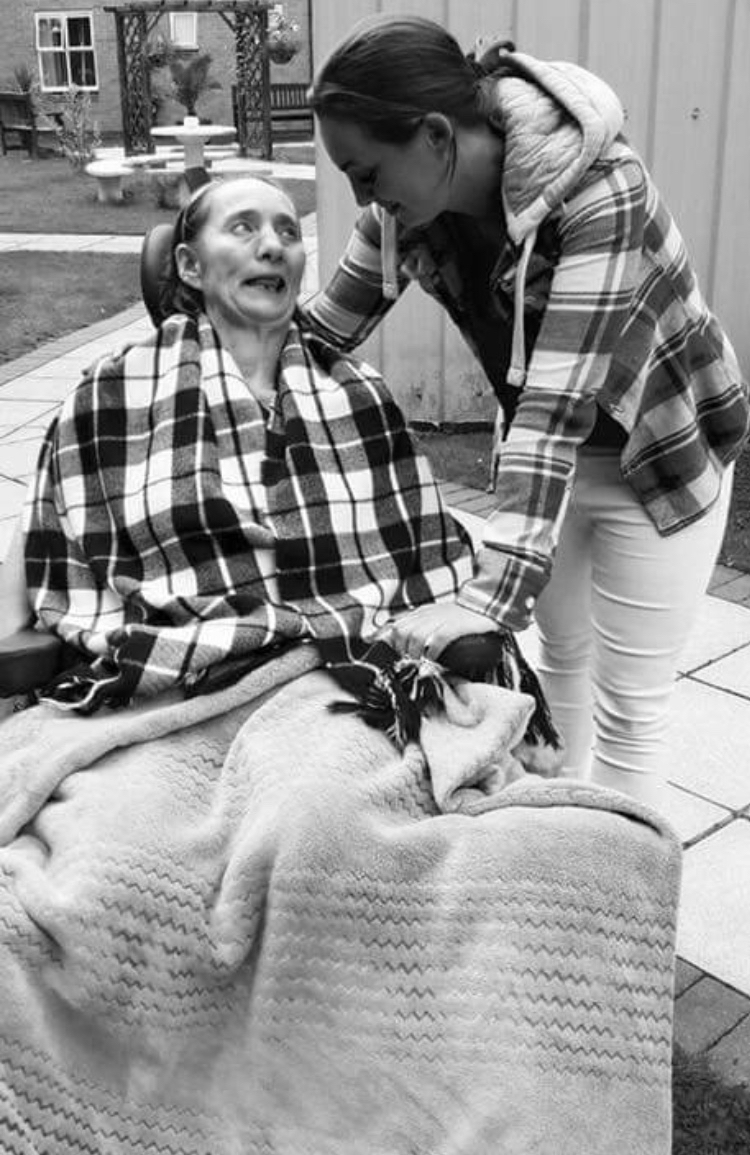
It is very common to feel guilty after a negative test, especially if your siblings have tested positive or remain at risk. If you have received a negative test and are looking for support, please visit our tested negative webpage.
If you are affected by Huntington’s disease and are in need of support or advice, please contact us on 0151 331 5444 or email info@hda.org.uk. Our dedicated phone line is open 9 am – 5 pm, Monday – Friday with Specialist Advisers waiting at the other end to offer you support. If you are a carer for a loved one, you can find information on how to get support here.
If you have a story to share, please get in touch with us via email.

